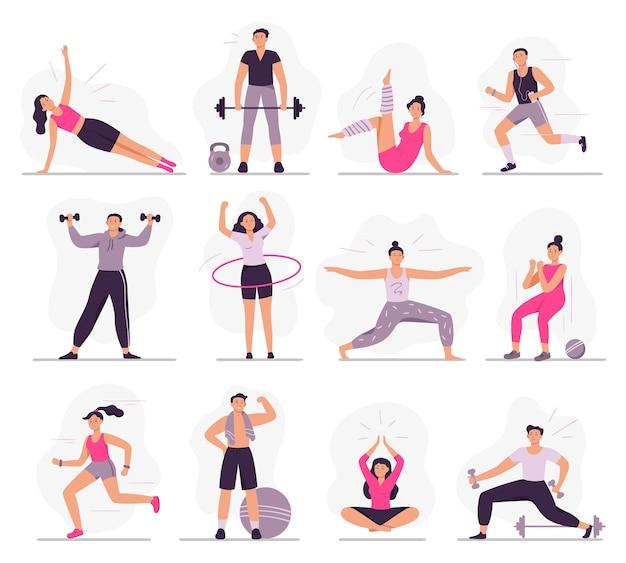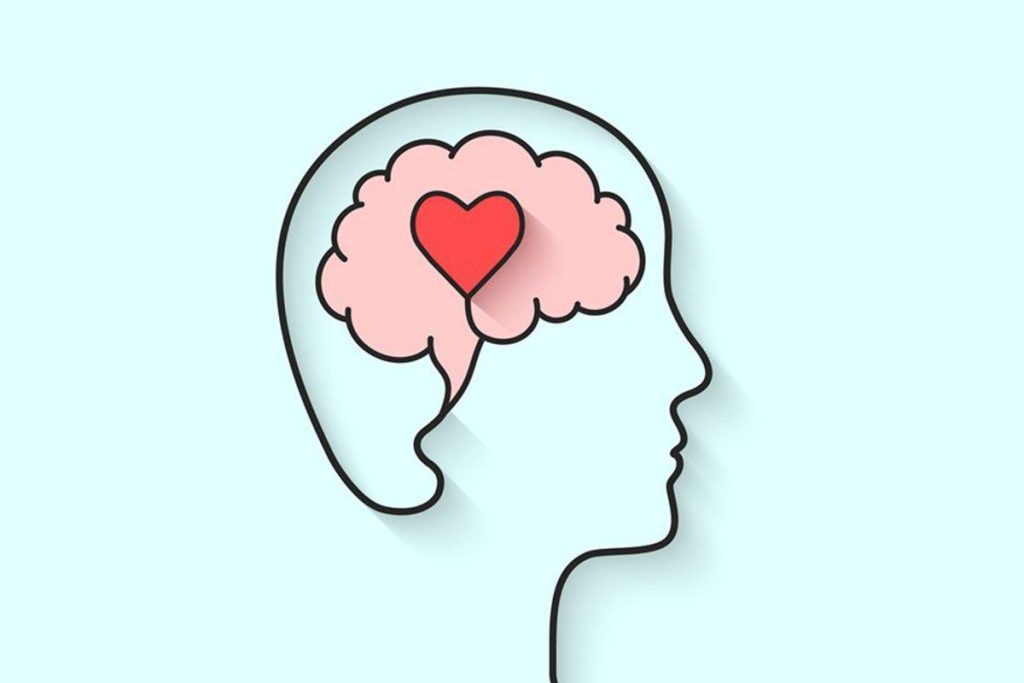In today’s fast-paced world, the relationship between mental and physical well-being is more relevant than ever. Often viewed as separate entities, our mental and physical health are, in reality, intricately connected; each profoundly influences the other. Chronic stress, anxiety, and depression can manifest in physical symptoms, such as fatigue or chronic pain, while poor physical health can exacerbate feelings of sadness and isolation. Understanding this intricate web is crucial not just for fostering a healthier existence but for leading a fulfilling life. In this article, we will explore the profound link between mental and physical well-being, examining the scientific evidence that supports this connection and offering insights into how we can nurture both aspects of our health for a more balanced and vibrant life. Whether you’re grappling with stress or seeking to enhance your overall wellness, uncovering this connection may be the key to unlocking a healthier, happier you.
Table of Contents
- Understanding the Interconnection: How Mental Health Influences Physical Well-being
- The Role of Exercise: Boosting Mood and Physical Health Simultaneously
- Nutritions Impact: Fueling the Brain for Optimal Mental and Physical Function
- Mindfulness and Stress Management: Techniques for Enhancing Overall Health
- Final Thoughts
Understanding the Interconnection: How Mental Health Influences Physical Well-being

Mental health and physical well-being are intricately linked in a dynamic relationship that shapes our overall health. Emotional distress and mental health disorders, such as anxiety and depression, can manifest in profound physical symptoms. Individuals may experience a range of issues, including chronic pain, digestive problems, and fatigue, highlighting the body’s response to psychological stress. Moreover, the brain’s intricate communication with other bodily systems sends signals that can accelerate or alleviate physical ailments, underscoring the importance of maintaining mental equilibrium for better physical outcomes.
To further understand this connection, consider the following factors that illustrate how mental state can catalyze physical health outcomes:
- Immune Response: Psychological stress negatively impacts immune function, making individuals more susceptible to illnesses.
- Behavioral Changes: Mental health challenges often lead to unhealthy behaviors, such as poor diet or inactivity, which exacerbate physical health conditions.
- Chronic Illness Impact: Conditions like diabetes and cardiovascular disease can be worsened by untreated mental health issues.
| Mental Health Issue | Possible Physical Symptoms |
|---|---|
| Depression | Fatigue, body aches, sleep disturbances |
| Anxiety | Headaches, increased heart rate, digestive issues |
| Stress | High blood pressure, weakened immune response |
The Role of Exercise: Boosting Mood and Physical Health Simultaneously

Incorporating exercise into daily routines creates a robust connection between physical and mental health, acting as a powerful antidote for stress and anxiety. Regular physical activity not only helps to build strength and endurance but also significantly impacts mood regulation through the release of neurotransmitters such as serotonin and endorphins. This biochemical response to exercise fosters a sense of well-being, making individuals feel happier and more energized. The myriad benefits associated with physical fitness can include:
- Enhanced mood balance: Reducing symptoms of depression and anxiety.
- Increased energy levels: Leading to improved productivity and focus.
- Better sleep quality: Promoting restorative rest that rejuvenates both body and mind.
- Social interaction: Encouraging participation in group activities can strengthen community bonds.
Moreover, the act of exercising creates a sense of accomplishment, boosting self-esteem and confidence. Engaging in physical activity takes the focus away from everyday stressors, allowing for a mental reset that can enhance overall cognitive function. The importance of striking this balance can be illustrated through the following table:
| Type of Exercise | Mental Benefits | Physical Benefits |
|---|---|---|
| Cardio (running, cycling) | Increased endorphin production | Improved cardiovascular health |
| Yoga | Enhanced mindfulness and relaxation | Greater flexibility and balance |
| Strength Training | Boosted confidence and body image | Increased muscle strength and metabolism |
Nutritions Impact: Fueling the Brain for Optimal Mental and Physical Function
The brain is an incredibly complex organ that requires a steady supply of nutrients to function optimally. Just as fuel powers a car, specific nutrients fuel the processes that keep our brains sharp and our bodies energized. An array of vitamins, minerals, and macronutrients play critical roles in supporting cognitive functions, mood regulation, and overall health. Essential fatty acids, particularly Omega-3s, are crucial for brain health, as they contribute to the structural integrity of neurons and promote communication between them. Nutrient-dense foods such as:
- Leafy greens – high in vitamins K, C, and A
- Whole grains – provide steady energy
- Berries – packed with antioxidants that combat oxidative stress
- Fish – rich in Omega-3 fatty acids
- Nuts and seeds – provide healthy fats and vitamin E
These foods not only enhance cognitive function but also help in managing stress and anxiety, foundational elements that affect both mental and physical performance. Consuming a balanced diet aids in maintaining stable blood sugar levels, which is key to sustaining focus and productivity throughout the day. Research indicates a strong correlation between nutritional intake and mental health, with diets rich in whole foods being linked to decreased rates of depression and anxiety. The table below highlights specific nutrients and their mental health benefits:
| Nutrient | Benefits |
|---|---|
| Omega-3 Fatty Acids | Support memory and cognitive function |
| Magnesium | Helps regulate neurotransmitters |
| B Vitamins | Promote energy production and reduce fatigue |
| Zinc | Essential for brain development and function |
Mindfulness and Stress Management: Techniques for Enhancing Overall Health
In today’s fast-paced world, where stress often feels like an inevitable companion, incorporating mindfulness techniques can drastically alter our response to daily pressures. Regular practice fosters a heightened awareness of the present moment, promoting better emotional regulation and resilience. Some effective mindfulness techniques include:
- Mindful Breathing: Focusing intently on your breath helps ground you, easing anxiety.
- Body Scan Meditation: This technique encourages a deep connection between body and mind by fostering awareness of physical sensations.
- Guided Imagery: Visualizing peaceful settings can transport your mind away from stressors, invigorating mental clarity.
Moreover, stress management strategies can further amplify the benefits of mindfulness, solidifying your overall well-being. Integrating physical activities such as yoga or tai chi not only reinforces mindfulness principles but also promotes physical fitness and flexibility. Consider the following approaches for comprehensive stress management:
| Technique | Benefits |
|---|---|
| Yoga | Enhances flexibility, reduces anxiety, and improves concentration. |
| Progressive Muscle Relaxation | Helps in reducing muscle tension and encourages a calm mind. |
| Journaling | Facilitates emotional release and provides clarity on stressors. |
Final Thoughts
the intricate relationship between mental and physical well-being is a vital aspect of our overall health that cannot be overlooked. As we’ve explored, mental health influences our physical state, and vice versa, creating a cycle that affects every facet of our lives. Prioritizing both aspects is essential, whether it’s through regular exercise, mindfulness practices, or simply acknowledging the importance of seeking help when needed.
As we strive for a balanced and fulfilling life, let us remember that nurturing our minds is just as critical as caring for our bodies. By fostering this connection, we can work towards a healthier, happier existence—one where we honor the profound interdependence of our mental and physical selves. Ultimately, investing in both your mind and body is not merely an act of self-care; it’s a commitment to living your best life. Thank you for joining us on this journey, and may you find harmony in the connection between your mind and body.



